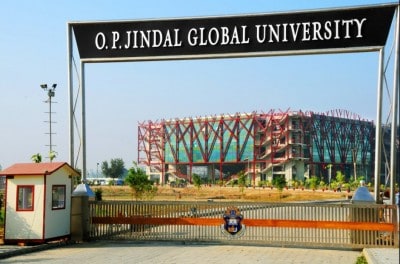New Delhi, Oct 5 : The O.P. Jindal Global University (JGU) in collaboration with the Education Promotion Society of India (EPSI), NHRD network, Birla Institute of Management Technology (BIMTECH) and Manav Rachna Vidyanatariksha organised a leadership colloquium in memory of Padma Shri awardee, late Pritam Singh, former Director of IIM, Lucknow and MDI, Gurgaon.
Remembering the life and legacy of Singh, JGU’s Founding Vice-Chancellor, C. Raj Kumar, said, “Pritam Singh was not only an erudite academician, but also a great leader and institutional builder. Over the past several years, he has guided the efforts and initiatives of several universities and institutions to achieve academic excellence. His demise has been a huge loss to our nation and to the higher education landscape of India.”
In relation to the Leadership Colloquium, Professor Kumar said, “Dr. Pritam Singh’s life is a celebration of social impact created, particularly through education. He was a true karmayogi who contributed to various aspects of higher education, institution building and nation building. He played an instrumental role in shaping the minds of the leadership of organizations and enabling policies that had a positive impact on our society. Therefore, this colloquium was our humble attempt to pay respect to his legacy by discussing the very importance of social impact through social responsibility of businesses.”
The colloquium had some very invigorating and intellectual deliberations to envision the future of social responsibility of businesses, and integration of this vision with the contributions and learnings from Pritam Singh’s life.
Commemorating the life of Pritam Singh, Jyoti Gupta, Emeritus Professor of Finance, ESCP Business School, said that he appreciated Pritam Singh’s belief to be able to draw from Indian philosophy, and how it should be integrated within the management schools for creating socially responsible leaders.
He said, “When you see his movement, his Directorship at MDI and IIM Lucknow, you see that he has brought in Indian philosophy in the management education.” He mentioned that Dr. Singh believed that ‘a leader should not be a value extractor, but a value creator’.
The evolution of social responsibility, the role of Corporate Social Responsibility (CSR), the impact of social quotient of an organization on consumers were some important issues addressed during their colloquium.
The speakers engaged in multiple facets of social responsibility such as Corporate Social Performance (CSP), Socially Responsible Investment Funds (SRIs), and Environmental, Social and Governance (ESG) Reporting.
While discussing about the larger role of social responsibility of business, Shyam Sunder, James Frank Professor of Accounting, Yale School of Management, said, “It must enable all its participants to live with dignity, preserve their health — that is the large part of environmental externalities, promote their wealth — material welfare, consider the future not just the present — that is the idea of sustainability, and consider these factors both individually as well as collectively.”
Highlighting the importance of ingraining social responsibility in the very ethos and culture of an organization, Suresh Tripathi, Vice president – Human Resource Management Tata Steel Ltd., India said, “If you have it somewhere in the vision itself, and it percolates down, it becomes the DNA of the organization, the thinking is influenced. Everything that you do in terms of business has the impact of this philosophy behind it. Whether you are making a product or doing a service, you’d like to ensure that there is a societal value in it.”
The colloquium also addressed the vision of organizations for balancing their legal, economic, social and environmental responsibilities, and reimagining the social responsibility of business to extend beyond monetary contributions.
Shubhalakshmi Panse, Former Chairperson & Managing Director, Allahabad Bank, India, highlighted some examples of social initiatives and said, “CSR initiative is just not limited to what we are going to spend as far as those two per cent is concerned, but we are also looking at it from a long-term perspective on what is the sea change we are bringing about in the entire community, in the environment, in the mother nature.”
Disclaimer: This story is auto-generated from IANS service.

